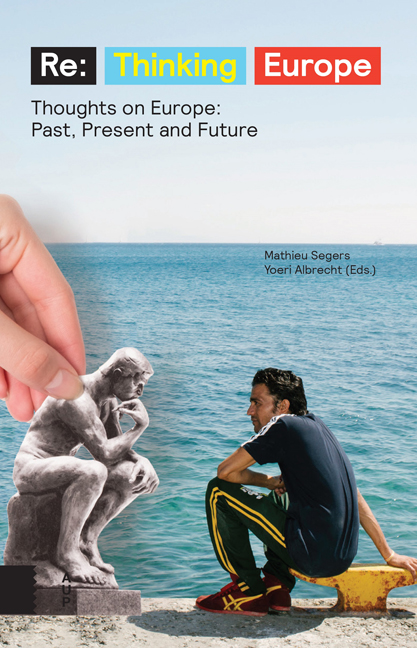The Bruges Speech
Published online by Cambridge University Press: 07 January 2021
Summary
Bruges, 20 September 1988
Prime Minister, Rector, Your Excellencies, Ladies and Gentlemen,
First, may I thank you for giving me the opportunity to return to Bruges and in very different circumstances from my last visit shortly after the Zeebrugge Ferry disaster, when Belgian courage and the devotion of your doctors and nurses saved so many British lives.
And second, may I say what a pleasure it is to speak at the College of Europe under the distinguished leadership of its Rector [Professor Lukaszewski]. The College plays a vital and increasingly important part in the life of the European Community.
And third, may I also thank you for inviting me to deliver my address in this magnificent hall. What better place to speak of Europe's future than a building which so gloriously recalls the greatness that Europe had already achieved over 600 years ago.
Your city of Bruges has many other historical associations for us in Britain. Geoffrey Chaucer was a frequent visitor here. And the first book to be printed in the English language was produced here in Bruges by William Caxton.
Britain and Europe
Mr. Chairman, you have invited me to speak on the subject of Britain and Europe. Perhaps I should congratulate you on your courage. If you believe some of the things said and written about my views on Europe, it must seem rather like inviting Genghis Khan to speak on the virtues of peaceful coexistence!
I want to start by disposing of some myths about my country, Britain, and its relationship with Europe and to do that, I must say something about the identity of Europe itself.
Europe is not the creation of the Treaty of Rome. Nor is the European idea the property of any group or institution.
We British are as much heirs to the legacy of European culture as any other nation. Our links to the rest of Europe, the continent of Europe, have been the dominant factor in our history.
For three hundred years, we were part of the Roman Empire and our maps still trace the straight lines of the roads the Romans built. Our ancestors ‒ Celts, Saxons, Danes ‒ came from the Continent. Our nation was ‒ in that favourite Community word ‒ “restructured” under the Norman and Angevin rule in the eleventh and twelfth centuries.
- Type
- Chapter
- Information
- ReThinking Europe Thoughts on Europe: Past, Present and Future, pp. 215 - 226Publisher: Amsterdam University PressPrint publication year: 2016
- 1
- Cited by

